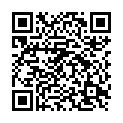|
|
|
| Module code: DFBEES-301 |
|
|
4VU (4 hours per week) |
|
4 |
| Semester: 3 |
| Mandatory course: yes |
Language of instruction:
German |
Assessment:
Written exam
[updated 04.12.2020]
|
DFBGE-019 (P610-0025) Electrical Engineering - Renewable Energy and System Technology, Bachelor, ASPO 01.10.2018
, semester 3, mandatory course
DFBEES-301 (P610-0025) Electrical Engineering - Renewable Energy and System Technology, Bachelor, ASPO 01.10.2019
, semester 3, mandatory course
DFBGE-019 (P610-0025) Electrical Engineering, Bachelor, ASPO 01.10.2015
, semester 3, mandatory course
DFBGM307 Mechanical Engineering, Bachelor, ASPO 01.10.2018
, semester 3, mandatory course
DFBME-301 (P610-0086) Mechanical Engineering, Bachelor, ASPO 01.10.2019
, semester 3, mandatory course
DFBME-301 (P610-0086) Mechanical Engineering, Bachelor, ASPO 01.10.2024
, semester 3, mandatory course
DFBI-311 (P610-0227) Computer Science and Web Engineering, Bachelor, ASPO 01.10.2018
, semester 3, mandatory course
DFIW-301 (P610-0178) Computer Science and Web Engineering, Bachelor, ASPO 01.10.2019
, semester 3, mandatory course
|
60 class hours (= 45 clock hours) over a 15-week period.
The total student study time is 120 hours (equivalent to 4 ECTS credits).
There are therefore 75 hours available for class preparation and follow-up work and exam preparation.
|
Recommended prerequisites (modules):
None.
|
Recommended as prerequisite for:
|
Module coordinator:
Dr. Julia Frisch |
Lecturer: Dr. Julia Frisch
[updated 16.10.2020]
|
Learning outcomes:
After successfully completing this course, students will have improved their language skills to level B1/B2 (GER).
Listening comprehension/speaking skills
Students will be able to follow a presentation on a topic, give a presentation or initiate a conversation on a relatively broad range of topics. They will have improved their pronunciation.
Reading comprehension
Students will be able to extract relevant information from texts and understand detailed instructions or advice.
Writing
Students will be able to take notes during a conversation/lecture or write a letter that includes non-standard requests.
Grammar/Structures in scientific language
Students will be able to recognize and apply grammatical structures.
[updated 04.12.2020]
|
Module content:
Listening comprehension/speaking skills
- Student presentations on various topics
- Group discussions on various topics
- Speech techniques and strategies
- Speaking in specific situations
- Various audio texts, audiovisual material (general and technical)
- Phonetics
Reading comprehension
- Recognizing and editing different types of text
- Developing and applying reading strategies
- Developing and enlarging vocabulary
Writing
- Memo technique for taking notes with listening comprehension texts / summarizing texts
- Writing formal and personal letters and e-mails
- Free, narrative writing
- Written version of the presentation held in class; scientific writing
- Orthography and punctuation
Grammar/Structures in scientific language
- Practicing and using relevant grammatical structures e.g. adjective declension; conjugation in all tenses, active/passive, subjunctive, causal, temporal, concessive, conditional, modal subordinate clauses, prepositions
[updated 04.12.2020]
|
Teaching methods/Media:
Blackboard, PC presentation; Text and exercise sheets, audio CDs, DVD
[updated 04.12.2020]
|
Recommended or required reading:
Various textbooks (e.g. Mittelpunkt neu), current publications, audio-visual media
[updated 04.12.2020]
|

